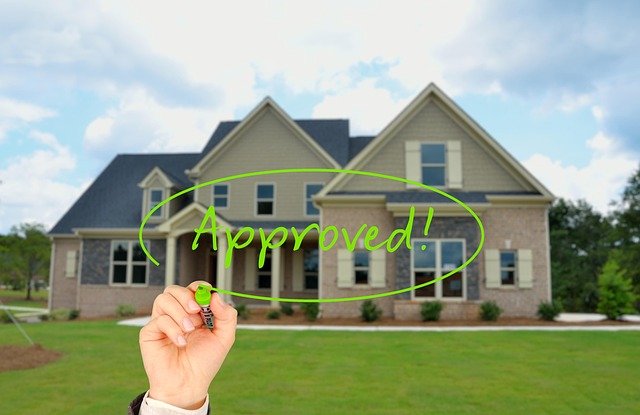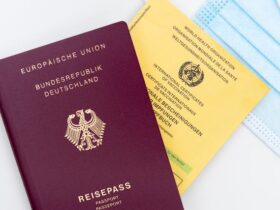Why Buying in Germany as an Expat Matters
Germany remains one of Europe’s most stable property markets economically secure, legally structured, and offering long-term value. But expats often face additional hurdles: stricter mortgage terms, language barriers, and complex paperwork. Still, with growing demand, low interest rates, and a strong economy, buying your own home can make both financial and emotional sense if you’re planning to stay long-term.
Step 1: Prepare Your Finances & Know Your Budget
First things first: know what you can afford not just based on your dream home, but the total cost of ownership.
- How much to save: Expect to pay 20–30% down payment for a mortgage, sometimes more if you’re non-EU or self-employed.
- Monthly affordability: German banks often limit your mortgage to about 100x your net monthly income.
- Build good credit: A clean SCHUFA (credit record) and a stable German income make a difference.
- Use a mortgage broker: Platforms like Interhyp or Hypofriend can help expats navigate German-specific lending criteria.
Step 2: Securing a Mortgage as an Expat
Getting a mortgage is your most critical—and potentially tricky—step.
- Residency matters: Permanent residency or long-term contracts significantly boost your chances.
- Employment type matters: Salaried expats fare better. Freelancers need tax documents, past assessments, and may pay more equity.
- Bank policies: Some German banks, like Deutsche Bank, may be hesitant to lend to U.S. citizens due to legal exposure concerns.
- Mortgages to know: Know what kind of loan you’re getting: annuity, variable, or full repayment—even Bauspar (building-savings) contracts.
Step 3: Searching & Choosing the Right Property
Once pre-approved, it’s time to find “your home”:
- Use trusted portals: ImmoScout24, Immowelt, and local agents are your go-to platforms.
- Location evaluations: Prioritize infrastructure such as public transport, internet connectivity (especially in less dense areas), proximity to schools and shops.
- Inspect carefully: Older homes may need insulation or heating system upgrades, energy efficiency standards (Energieausweis) might demand costly updates after purchase.
Step 4: Legal Process: Contracts, Notary & Title
Unlike some countries, every property transfer in Germany must involve a notary who ensures the contract is fair and legally binding.
- Key legal documents: Contract of Sale (Kaufvertrag), Notary certification, Land Register extract (Grundbuchauszug), and Title Deed.
- Notary’s role: This person represents both buyer and seller to ensure neutrality and compliance. Their job ends with registration in the land registry.
- Foreign buyers: You don’t need residency, just the right legal representation even a lawyer with power of attorney can sign on your behalf.
Step 5: Hidden Costs You Must Budget For
Expect additional taxes and fees amounting to 10–15% of the purchase price:
| Cost Type | Estimated % |
|---|---|
| Property Transfer Tax (Grunderwerbsteuer) | 3.5–6.5% |
| Notary & Land Registry | ~1.5–2% |
| Real Estate Agent Fee (if applicable) | Up to ~3.57% (buyer’s share, VAT incl.) |
Berlin buyers particularly should expect around 15% in extra costs.
Step 6: Things Buyers Often Overlook
- Annual Property Tax (Grundsteuer): A modest ongoing charge levied by local municipalities.
- Capital Gains Tax: If you sell within 10 years for profit, tax applies—ownership of 3+ years can avoid this.
- Tenant restrictions: Buying a home with tenants? German tenant protections are strong, eviction may be impossible for years.
- Utilities & hidden costs: From garbage and insulation to internet and heating, these can surprise new homeowners. As one expat put it: “Prepare for costs beyond just the price: renovation, overlap of rents, utilities, taxes…”.
Final Take: Is It Worth It?
Germany’s ownership rate is among the lowest in Europe with about 47% because many prefer renting. But for expats planning a long stay, buying can offer stability, control, and a home that’s truly yours.
Pros:
- Stable, well-regulated market
- Options even without residency
- Long-term financial sense with fixed-rate loans
Cons:
- Complex process, heavy documentation
- High upfront fees: 10–15% extra
- Need strong credit, downpayment, and language support
Final Tips for Success:
- Start with pre-approval—know your financing envelope first.
- Work with expat-savvy agents or lawyers. Many offer bilingual support.
- Save for the “hidden 15%” upfront. You’ll be surprised how fast it adds up.
- Use checklists: energy certificates, building condition, legal reviews.
Buying your first home in Germany as an expat is entirely doable with some legwork. From financial prep and mortgage sorting to inspections and notary trails, the journey is structured, just be patient, get the right support, and enjoy the feeling of owning your piece of this beautiful country.

















Leave a Reply